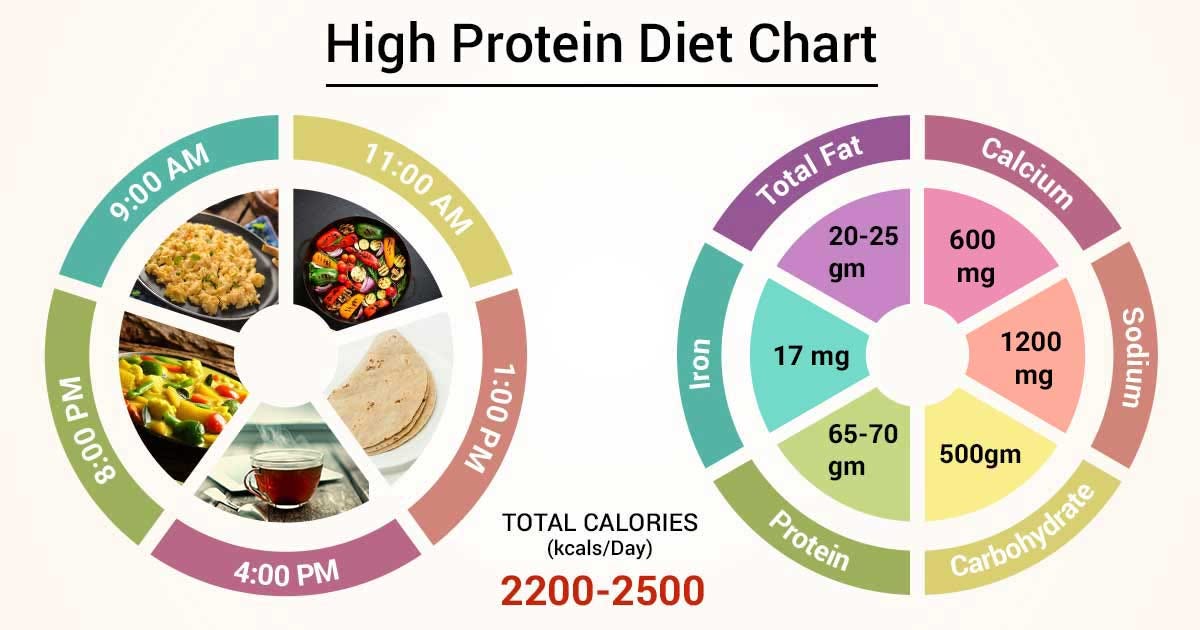2Mami Insights
Your go-to source for news, tips, and inspiration.
Protein-Packed Paradise: Eat Your Way to Greatness
Discover delicious, protein-rich recipes that fuel your body and elevate your health. Dive into Protein-Packed Paradise today!
Top 10 High-Protein Foods to Supercharge Your Diet
If you're looking to supercharge your diet with high-quality proteins, incorporating the right foods can make all the difference. Here are the top 10 high-protein foods that not only boost your protein intake but also provide essential nutrients:
- Chicken Breast
- Tuna
- Greek Yogurt
- Lentils
- Quinoa
- Almonds
- Eggs
- Cottage Cheese
- Tofu
- Chickpeas
Integrating these foods into your meals can help enhance your muscle repair, support your metabolism, and maintain a healthy weight. Consider experimenting with these ingredients in various recipes to fully benefit from their protein-packed power!

The Ultimate Guide to Protein: How Much Do You Really Need?
Protein is a crucial macronutrient that plays a pivotal role in our overall health and well-being. It is essential for building and repairing tissues, producing enzymes and hormones, and supporting immune function. But how much protein do you really need? The recommended dietary allowance (RDA) for protein is 0.8 grams per kilogram of body weight for the average adult. However, individual protein needs can vary significantly based on factors such as age, sex, activity level, and fitness goals. For example, athletes or those engaged in heavy strength training may require closer to 1.2 to 2.0 grams of protein per kilogram to support muscle repair and growth.
To determine your specific protein needs, start by calculating your body weight in kilograms and then use the RDA as a baseline. Here’s a quick guide to help you:
- Calculate your weight in kg: Divide your weight in pounds by 2.2.
- Determine your activity level: Sedentary (0.8g), Active (1.2g), or Intense training (1.6-2.0g).
- Multiply your weight by the appropriate protein factor: This will give you your daily protein requirement in grams.
Understanding your protein needs can enhance your diet, improve your performance, and support overall health.
Protein Myths Debunked: Separating Fact from Fiction for Optimal Health
When it comes to protein, misinformation abounds. One of the most common myths is that consuming high amounts of protein is harmful to kidney health. However, research has shown that for healthy individuals, high protein intake has no significant negative effects on kidney function. Conversely, those with pre-existing kidney conditions may need to moderate their protein consumption, but this is not a blanket rule applicable to everyone. Additionally, it's essential to recognize that protein is crucial for muscle repair, immune function, and many other bodily processes, making it a vital nutrient for overall health.
Another prevalent myth is the belief that plant-based proteins are inferior to animal proteins. While it's true that animal proteins contain all essential amino acids, many plant-based sources like quinoa, soy, and hemp seeds also offer complete protein profiles. Moreover, plant proteins are often rich in fiber, vitamins, and minerals, contributing to a balanced diet. It's important for those following vegetarian or vegan diets to diversify their sources of protein to ensure they receive adequate nutrition. In fact, by combining different plant proteins, such as beans and rice, individuals can achieve a complete amino acid profile, debunking the notion that plant-based eating compromises protein quality.